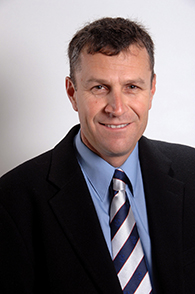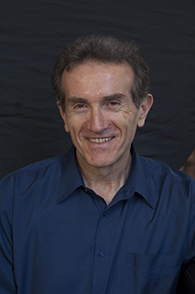Partnership with Australia bringing first Fulbright scholars as guests to Kansas State University
Friday, March 7, 2014
MANHATTAN — Kansas State University will host its first two Fulbright scholars, from Perth, Australia, beginning this summer.
For six months beginning in July, John Pluske will be the university's Fulbright distinguished chair in agriculture and life sciences, and Zed Rengel will be the university's Fulbright senior scholar. Both guest positions are part of the university's partnership with Australia, including collaborations with some of Australia's most prestigious universities and the Australian-American Fulbright Commission.
"The selection and arrival of our Fulbright guests is a new benchmark in Kansas State University's growing partnership with Australia as we strive to become a Top 50 public research university by 2025," said Kirk Schulz, president.
"We are privileged to be hosting two of Australia's most recognized scholars as they conduct research that contributes to our impact on food production and share their knowledge with Kansas State University students and faculty related to the Global Food Systems Initiative," said April Mason, provost and senior vice president.
Pluske is the director of the Animal Research Institute at Murdoch University. At Kansas State University he will focus on antibiotic resistance in swine. He will look at populations of selected bacteria in the gut that are associated with alternative antimicrobial feed additives. The research will allow for informed decision-making in the use of the alternative additives and will provide a platform for future research.
"I will benefit enormously from interactions with staff in the College of Agriculture and the College of Veterinary Medicine that will equip me with new skills and techniques for translation into the Australian pig industry," Pluske said. "I am excited by the prospect of participating in bilateral learning, appreciation and understanding not only in my specific field of research, but also from the wider perspective of agricultural and rural issues that affect societies in both the U.S. and Australia."
Rengel is a Winthrop professor in the School of Earth and Environment at the University of Western Australia. At Kansas State University he will identify molecular markers associated with specific traits of wheat roots and integrate them into a root simulation model. This will help us develop wheat varieties that use water and nutrients more efficiently.
"The next Green Revolution is likely to come from breeding for improved root systems because the arable area in the world is limited and has been declining," Rengel said. "Computer simulations of root systems will allow scientists to reduce costs associated with field trials aimed at finding new crop genotypes efficient in taking up water and nutrients from soils."


